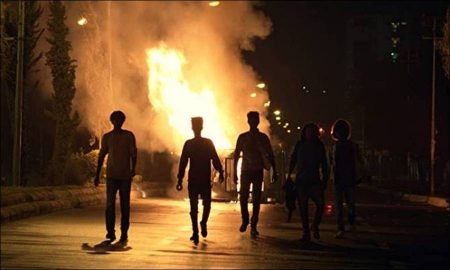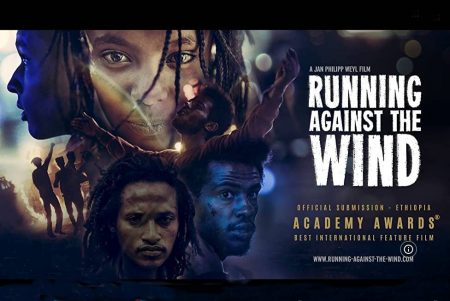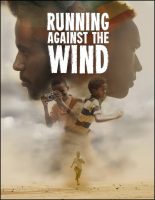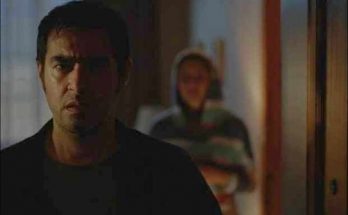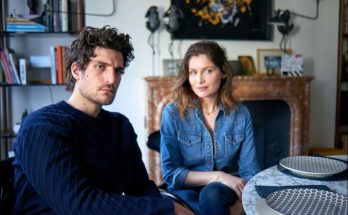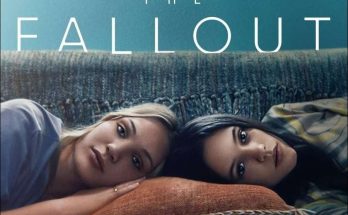Running Against the Wind Movie Storyline. One brother dreams of becoming an Olympic runner while the other aspires to be a photographer. They go separate ways, but their paths cross again as adults. Abdi (Ashenafi Nigusu) and Solomon (Mikias Wolde) are childhood friends who grow up in rural Ethiopia. Their paths diverge dramatically when Solomon runs away to the big city with dreams of becoming a photographer, only to end up on the streets, scraping for food and mixing with bad company.
Ten years later, Abdi, who idolises the Olympic runner Haile Gebrselassie, also moves to the capital, where he continues training and even wins a national championship. After an emotional reunion, Abdi tries to pull Solomon out of his precarious situation, but fate has other plans.
The film explores the complexities of brotherhood, be it the bond between Solomon and his fellow outcasts, or the camaraderie among Abdi’s athletic team. Though perhaps not always assured in their performances, Nigusu and Wolde capture their characters’ first hug after years apart in a beautifully bittersweet moment. Shyly smiling at each other, the two young men suddenly and movingly revert to their childhood selves.
Running Against the Wind is a 2019 Ethiopian drama film directed by Jan Philipp Weyl. It was selected as the Ethiopian entry for the Best International Feature Film at the 92nd Academy Awards, but it was not nominated.
Film Review for Running Against the Wind
There can’t be many more challenging places to become a runner than Ethiopia, which has consistently produced some of the best in the world, but in this engaging film by newcomer Jan Philipp Weyl it’s a route out of poverty for young Abdi (Ferhane Beker; later Ashenafi Nigusu). His natural talent and hard work could take him all the way to the top, but he never forgets his childhood friendship with Solomon (Alamudin Abduselam; later Mikias Wolde), who set off for the city as a kid, hoping to make his name as a photographer. When their paths cross again, it changes both their lives.
Opening with two charming young leads who quickly get the audience engaged, the film unfolds into a multi-layered drama which explores many aspects of life in modern Addis Ababa and its environs. Cities everywhere have a habit of eating up young people who go there to seek their fortunes, and this is no different.
Though he manages to hang onto his camera, quickly becoming known as Photo, Solomon is drawn into a street gang and subsequently into a life of crime, stealing Mercedes engines for a vicious boss. It’s even harder for him to get out of this once he marries and has a child, as their safety can also be threatened, but a chance reconnection with Abdi leads to better prospects. Can he make the psychological adjustments necessary to benefit from this, and can he escape from coercive control, or will Abdi be inexorably drawn into his world?
The fundamentals of this story are familiar but the story is well told with a very strong sense of place, and there’s a lot going on in and around it. The stark divide between the poor and the middle classes is explored not just materially but also culturally, acknowledging the different ways of thinking that money enables and highlighting some of the barriers to social mobility that comfortable people often miss.
It’s not mired in misery, however, as we also see the enjoyable side of Solomon’s life, his love for his family and his closeness to his friends, even when they are troubled and aggressive. His delight in small gains makes an interesting counterpoint to the rigours of Abdi’s training regime, in which all the athletes are encouraged to keep their eyes on the prize.
The big narrative challenge here lies in balancing the two stories, and Weyl wisely elects not to split the running time evenly between them, trusting Nigusu to make Abdi an interesting character even though we know less about him. The result is a film which flows very well. It’s visually detailed, with plenty to draw the eye, and the early rural scenes highlight the beauty of a country still too often perceived in the West as a featureless desert.
There’s also a strong moral aspect to the story, focused on the importance of loyalty between friends and family, and the importance of seeing the good in people. This acts as an antidote to the conventions of stories about striving for success, and centres traditional Ethiopian values as, in parallel with the protagonists’ journeys, we see the country moving towards a Western model.
A rich and charismatic film with natural appeal, Running Against The Wind may not quite measure up to its considerable ambition but certainly won’t disappoint.
Running Against the Wind Mov (2021)
Directed by: Jan Philipp Weyl
Starring: Mikias Wolde, Ashenafi Nigusu, Joseph Reta Belay, Samrawit Desalegn, Genene Alemu, Beyanesh Ayalew, Mustefa Beker, Mestawot Abaynh, Haile Gebreselassie, Kiflom Aregawi
Screenplay by: Jan Philipp Weyl, Michael Wogh
Production Design by: Bartholomäus Martin Kleppek, Iraí Amana Martins de Souza, Elias Mulualem
Cinematography by: Mateusz Smolka
Film Editing by: Amanuel Tilahun Tadesse
Costume Design by: Abnet Alebel
Art Direction by: Clemens Geissler
Music by: Teddy Mak, Sileshi Demissie, Kenny Allen, Lew Berhane
MPAA Rating: None.
Distributed by: Samuel Goldwyn Films
Release Date: July 9, 2021
Views: 27
